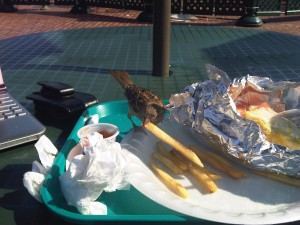 Summary: Using a bird metaphor, this post discusses the importance of taking calculated risks to achieve goals, as well as the costs associated with risk aversion. The lessons offered are both timeless and uniquely relevant to the adoption of social and digital technologies. Additional lessons are welcome. (from the Denovati SMART Blog)
Summary: Using a bird metaphor, this post discusses the importance of taking calculated risks to achieve goals, as well as the costs associated with risk aversion. The lessons offered are both timeless and uniquely relevant to the adoption of social and digital technologies. Additional lessons are welcome. (from the Denovati SMART Blog)
This is one of the earliest posts from the old SMinOrgs S.M.A.R.T. Blog, but its ideas seem to be timeless. Although it was published in June 2010, its lessons are still valid today.
On June 11, 2010, I had an energizing meeting with Pamela Green and Curtis Midkiff of the Society of Human Resources Management (SHRM) regarding social media. We discussed a wide range of issues related to the adoption of social media in organizations for both internal and external purposes, including the still-prevalent reluctance of both individuals and organizations to explore the potential of social media.
After our meeting in their offices in Alexandria, Virginia, I grabbed a bite to eat and was sitting outside enjoying the sunshine along the Potomac River. What happened next really captivated me, because it provided such a powerful metaphor about the importance of taking calculated risks to achieve goals, and the costs associated with risk aversion. Given the conversation I had just had with Pam and Curtis, I also couldn’t help but think about the lessons this metaphor can remind us of in the context of social media.
There were two kinds of birds in the area where I was hanging out: sparrows and starlings. As evidenced by the picture below, the sparrows were pretty fearless. They landed on the table, surveyed the scene, and then moved in to grab some of my food. At one point, two of them were on the table taking turns munching on my leftovers. The starlings lit on the table once or twice, but they were never confident enough to get any closer. As a result, the sparrows got to enjoy most of my food.
I also watched the sparrows get rewarded for their persistence and patience at another table where two young men (Jonathan and Steven) sat. One sparrow in particular perched on a chair and waited for them to notice it. Every once in a while one of them would toss it some bread, which was happily eaten.
After a while I decided to experiment, moving my tray further away from me to see how the birds would respond. Eventually I put it on top of the trash can. Interestingly, as long as Jonathan and Steven were there, the birds ignored it. It was as if they so strongly associated food with humans that they didn’t bother to consider that there might be some freely available somewhere else.
After they finally realized the tray was there and full of food, many birds came to eat, as indicated by the pictures below. Now that the risk had been minimized, the starlings tentatively approached and then finally grabbed some of the goods. The sparrows joined in as well, so what had been a blue ocean for them was suddenly red – but they were still able to enjoy its riches. In fact they continued to be the most assertive, so they continued to reap the biggest rewards.
Original Early Bird Gets the Worm Lessons
Before the birds had had their fill, a worker came out and threw the remains on the tray away. Like that, the food was gone. The birds kept returning, and they found a few scraps left, but soon they were gone too. The party was over.
So what does this episode reveal about social media adoption? The lessons aren’t new, but they are certainly worth reminding ourselves of. Here are some that struck me:
- First-mover advantage can be very rewarding, especially when the potential benefits are great and the potential risks are relatively low.
- Taking calculated risks – and being persistent and patient – will be rewarded.
- Narrow assumptions about where riches exist can create missed opportunities.
- Latecomers have to face increased competition once they finally decide to engage – and early adopters continue to reap benefits.
- Being bigger doesn’t mean much if you aren’t willing to leverage the advantages that size and strength offer against scrappier competitors.
- You have to take advantage of opportunities when they present themselves. You never know when they will disappear.
Additional Early Bird Gets the Worm Lessons
I did a bit of research when I was finalizing the original piece, and I found a blog post by Jim McCormac on sparrows that provided some interesting background and perspective. I learned that sparrows tend to be reviled for many of the behaviors I witnessed. Perhaps that indicates another lesson worth remembering: success can breed contempt.
After the piece was published, a couple of readers offered comments that led to the identification of additional lessons.
Carolyn Bender wrote::
Great article Courtney! This metaphor reminds me so much of our sale reps and how they can take calculated risks and be quick to the gate to set themselves apart from bigger competitors. I can take a lot of info from this to share with them the importance of differentiating themselves through SM and other forms of networking.
My response:
Thanks, Carolyn! Just as the tagline for SMinOrgs is “new tools for doing old things,” one of the big implicit messages in this post is “new opportunities for applying old lessons.” Social media is a game changer, but not in the ways many people assume. The objectives and the basic rules of play are still the same. Good luck with your sales reps!
Minter Dial added:
Reads like a folk story. A week ago I was in Annecy (the Venice of France, some say) on the porch early morning and I was contemplating similar dynamics with French sparrows. What I included in the experience was how do I, as a human, interact with them. Thus I developed my perch strategy: hold a crumb between the middle finger and thumb and extend the index finger as a perch. To begin with, it took one brave bird to make the trip and then they pretty much all followed suit. Only one of the sparrows never figured out how to get over its timidity.
Moral of the story: You can’t win over everyone, but find ways to help your “partners” and you will surely be rewarded by greater proximity.
My response:
Thanks, Minter. What a great lesson to add to the list. It’s amazing what the world can teach us when we pay attention!
Does this scenario remind you of any other lessons? I’d love to hear them!

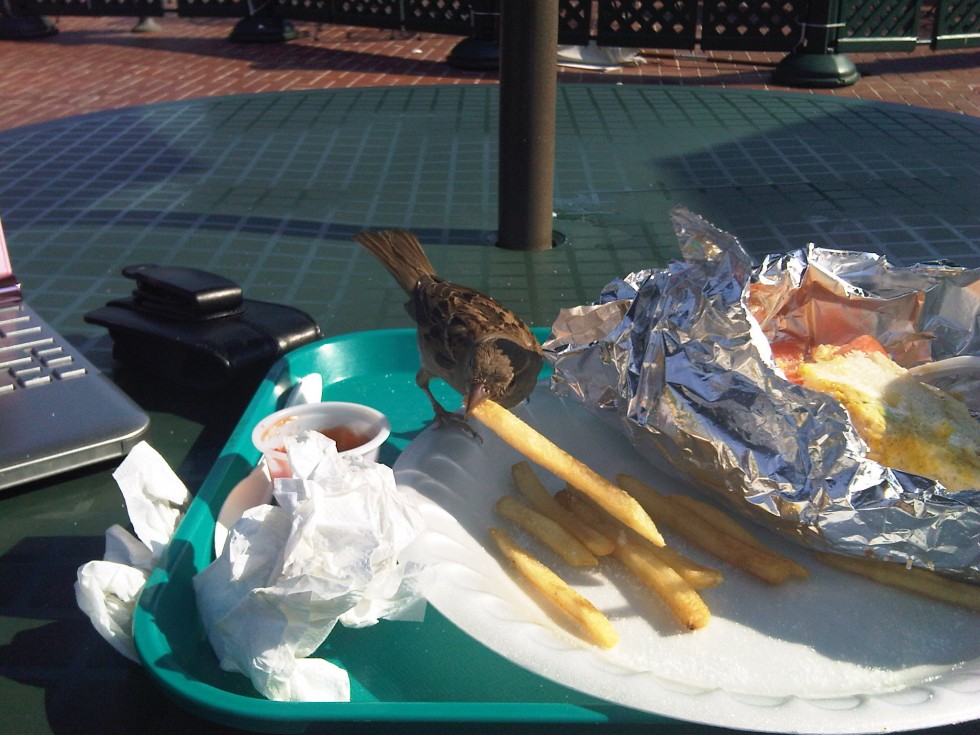
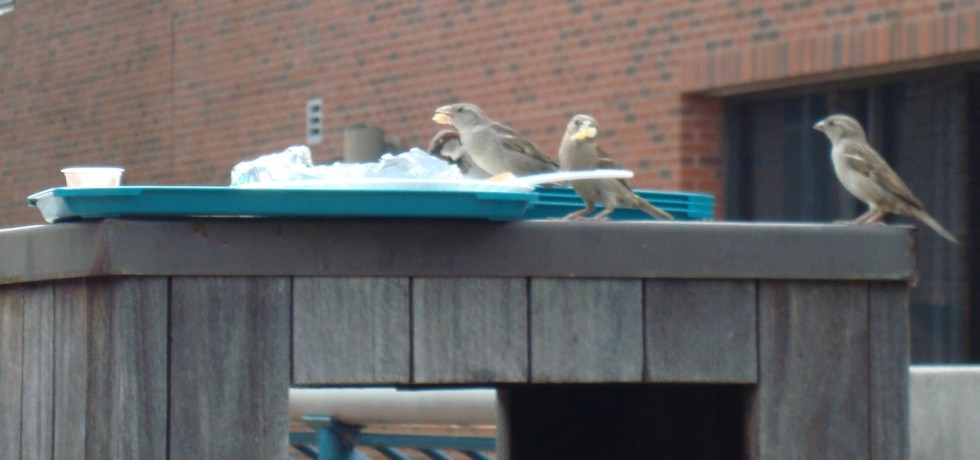
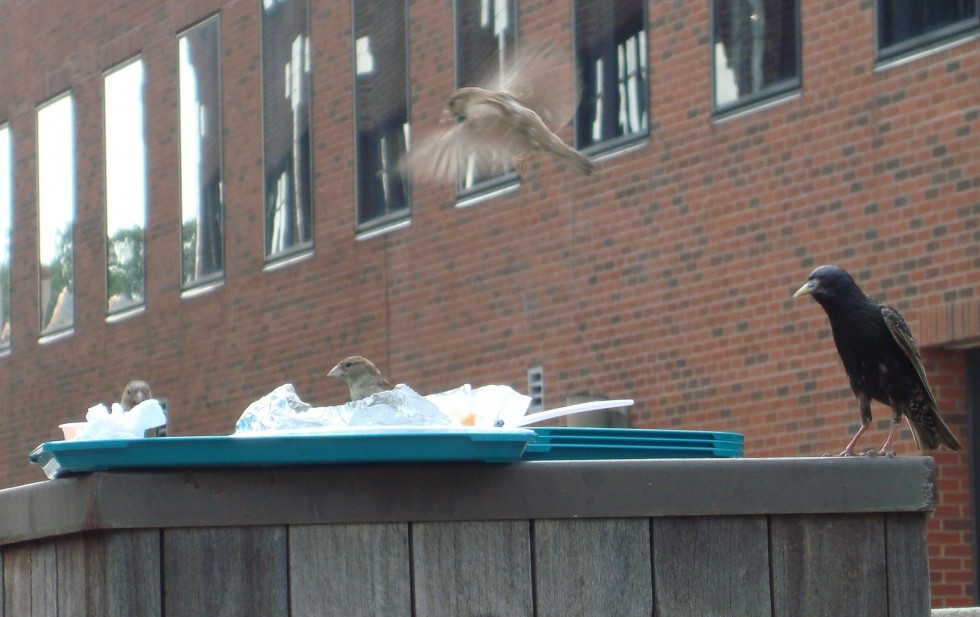
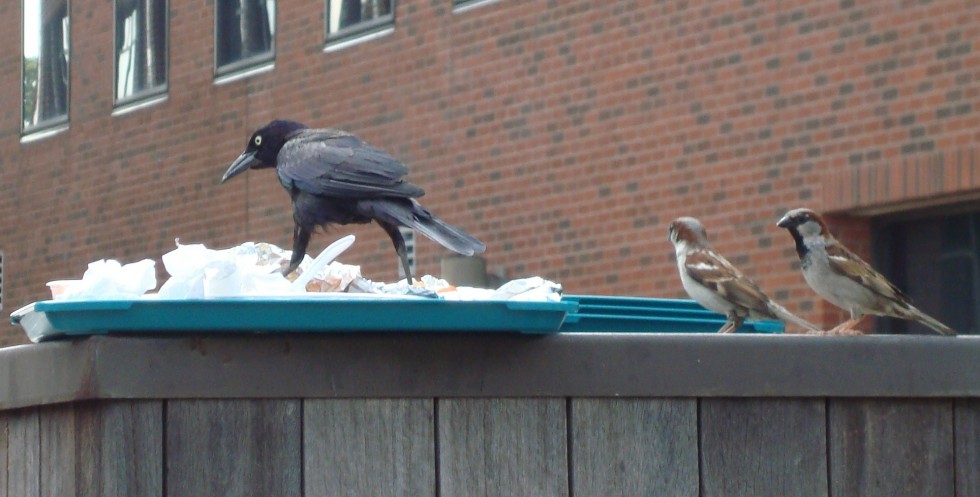


Leave a Reply
You must be logged in to post a comment.